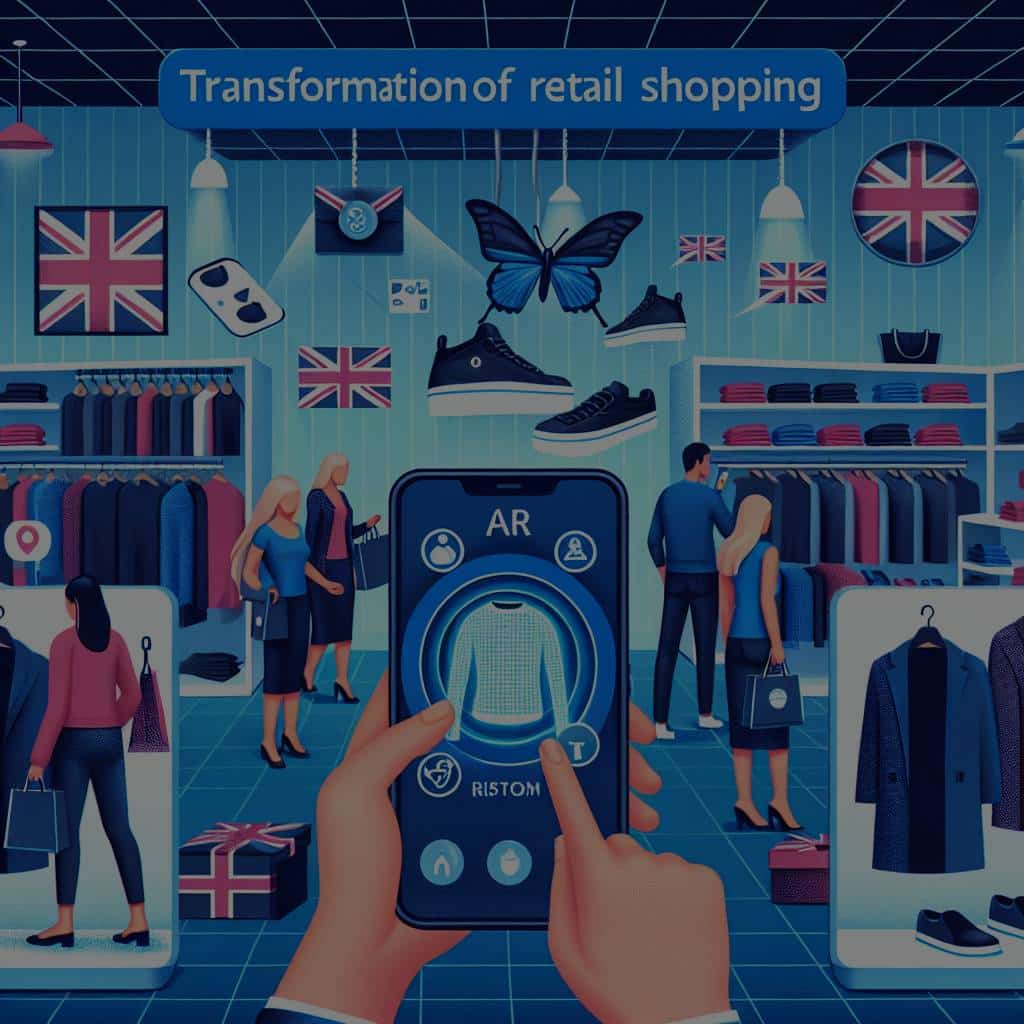How Can Augmented Reality Transform UK’s Retail Shopping Experience?

The modification of the retail landscape is no longer a prophecy; it’s an event well underway. The driving force behind this colossal shift is the technology referred to as Augmented Reality (AR). This ground-breaking technology is no longer merely a gimmick in video games and social media filters. It has taken a significant leap into the mainstream and is causing ripples across various sectors, including retail shopping. Augmented Reality has the potential to redefine how we perceive shopping by enhancing the interaction between customers and products. Let’s delve deeper into how AR could revolutionize the retail shopping experience in the UK.
Leveraging Augmented Reality to Enhance Customer Experience
Customer experience is a crucial factor that determines the success of any retailer. With the surge in online shopping, there’s a dire need to create interactive and engaging experiences for customers to keep them hooked. Augmented Reality can play an instrumental role in this regard.
A découvrir également : What’s the Role of Nanotechnology in Developing Next-Generation UK Textiles?
AR enables customers to virtually test, try on, or interact with products before buying. For instance, an online furniture store can use an AR app to allow customers to virtually place a piece of furniture in their home to see how it looks and fits. Similarly, a fashion retailer can create a virtual fitting room for users to try on different clothes or accessories. By blurring the line between the physical and virtual world, AR provides customers a unique, immersive, and personalised shopping experience.
Driving Sales with Augmented Reality
AR isn’t just about enhancing customer experience. It also holds promising potential to drive sales. A compelling AR experience can entice customers to spend more time exploring your products, which could eventually translate into increased sales.
Sujet a lire : Discover the excitement of custom mystery boxes now
Moreover, by integrating AR into your retail strategy, you can cater to customers’ demand for more information about the product. With AR, customers can explore the product in 3D, understand its features and benefits, and make informed purchase decisions. For instance, an AR app can allow users to scan a product in-store and pull up detailed product information. This not only helps customers make an informed purchase decision but also reduces the risk of product returns, thereby enhancing your brand’s reputation and profitability.
Augmented Reality: A Tool for Effective Branding
In the competitive retail industry, effective branding is crucial to differentiate your brand from the pack. Augmented Reality can be a powerful tool to bolster your branding strategy.
AR can create memorable and interactive experiences that resonate with your customers. For instance, in-store AR experiences can entertain customers while they wait, creating a positive association with your brand. Moreover, AR can be used to tell your brand’s story or demonstrate your brand’s values in a way that is engaging and appealing. By providing an immersive and distinctive brand experience, AR can help you connect with your customers on a deeper level and foster brand loyalty.
Augmented Reality Facilitating Retail Transformation
The retail industry is witnessing a significant transformation, driven by advancements in technology. As customers become more tech-savvy, retailers need to meet their growing expectations for a seamless and interactive shopping experience.
Augmented Reality is at the forefront of this retail transformation. By integrating AR into their business model, retailers can provide enhanced customer experiences, drive sales, and differentiate their brand. Moreover, AR can also assist retailers in gaining insights into customer behavior. For instance, AR apps can collect data on how customers interact with products, which products they prefer, etc. This data can be used to refine product offerings, marketing strategies, and pricing models.
The Future of Retail: A Blend of Physical and Virtual Experiences
As we look into the future of retail, it’s clear that technology will continue to play a pivotal role. The lines between physical and online shopping will continue to blur, creating a blended retail environment where customers can seamlessly switch between in-store and online shopping.
Augmented Reality will be central to this blended retail future. It will continue to evolve and become more sophisticated, providing greater interactivity and personalisation. As AR technology becomes more accessible and affordable, more and more retailers will adopt it, making it an integral part of the retail shopping experience. This would ultimately lead to a future where shopping, whether in-store or online, is a seamless, interactive, and personalised experience, thanks to the magic of Augmented Reality.
Strengthening Retail Business through Augmented Reality
The retail business in the UK is growing exponentially, with brick and mortar stores struggling to keep pace with the rapid surge of online shopping. Augmented reality (AR) has the potential to bridge this gap and revolutionise the retail sector. Implementing AR in retail strategy can significantly enhance the shopping experience and build customer satisfaction.
In this age of social media, AR offers a unique platform for interactive and real-time engagement. It provides a medium for retailers to showcase their products in a more immersive and engaging way, allowing customers to experience the product on a virtual level before making a purchase decision. This not only helps to increase customer engagement but also builds customer loyalty.
With AR, retailers can create a virtual shopping environment that mimics the physical store experience. Customers can navigate through virtual aisles, select products, and even get recommendations based on their shopping history. This seamless integration of physical and virtual shopping experiences can help brick and mortar stores regain their competitive edge and attract more customers.
Furthermore, AR can be instrumental in software development for retail stores. For instance, AR can be used to develop apps that provide real-time information about product availability, price comparison, and customer reviews. These apps can enhance the shopping experience by providing valuable insights and helping customers make informed purchase decisions.
The Future Potential of Augmented Reality in Retail
Looking ahead, the potential of augmented reality technology in the retail industry is tremendous. As technology continues to advance, AR will become more sophisticated, offering a more immersive and personalised shopping experience.
As customers become increasingly tech-savvy, their expectations for a seamless and interactive shopping experience are growing. Retailers who can embrace AR and integrate it into their business model will have a competitive edge. The ability to offer customers the convenience of online shopping, coupled with the immersive experience of in-store shopping, will redefine the retail landscape.
Moreover, AR has the potential to transform not just the shopping experience, but also the retail sector as a whole. It can provide valuable insights into customer behaviour, preferences, and buying patterns. This data can be leveraged to refine product offerings, tailor marketing strategies, and enhance customer satisfaction.
In conclusion, the future of retail in the UK looks bright, with Augmented Reality leading the way. It promises to revolutionise the shopping experience, making it more interactive, personalised, and satisfying. As AR becomes more accessible and affordable, it will become an integral part of the retail industry, transforming the way we shop and interact with products. Thus, the future of retail shopping will be a seamless blend of physical and virtual experiences, thanks to the magic of Augmented Reality.
